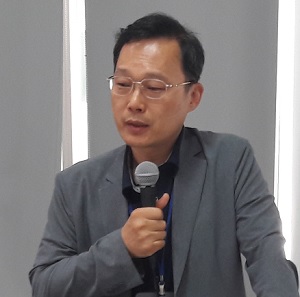When South and North Korea are reunified, the medical expense will rocket to an estimated 156 trillion won ($138 billion) a year, an expert said Saturday. The nation should work out cost-reduction measures and raise financial resources to prepare for the situation, he added.
Professor Jung Hyung-sun정형선 at Yonsei University Health Administration 연세대 보건행정학과 made the estimation at a conference organized by Association of Healthcare for Korean Unification, and called for a phased approach to decrease the gap between the healthcare systems between South and North Korea after unification.

“We cannot immediately integrate the healthcare systems of two Koreas after unification,” Jung said. “The nation needs to paint a ‘big picture’ in advance to establish an efficient and sustainable health security system that integrates the two separate systems into one.”
“North Korea has its medical systems, such as free treatment and family doctors, but they don’t work well. If South and North Korea are unified as they are now, the healthcare field will experience confusion more severe than in any other areas,” Professor Jung said.
It is necessary to decrease health gap between the two Koreas and social costs of unification by improving the health level of North Koreans. Just like the general unification steps move from reconciliation to integration and unification, the healthcare systems should also follow the phased steps; from the supporting phase to systematic approaching phase and the systemic establishment phase, the expert said.
Professor Jung then explained about jobs to be done in each stage and estimation for financial resources to fund them. In the support stage for recovery, South Korea has to decrease gap with the North to help restore the North’s virtually collapsed healthcare system while restricting exchanges between the two countries. The cost is estimated to be about 3.24 trillion won if we assume the phase would be five years,” he said.
Specifically, the costs comprise 1.9 trillion won for healthcare facilities and equipment (1.6 trillion won for reparation, and 339.5 billion won for new construction), 132 billion won for healthcare workforces training and 1.1 trillion won for primary healthcare provision.
“In the systemic approach stage, we have to change the North’s systems based on the South’s healthcare systems. This is a stage when South Korea allows North Koreans’ use of the South’s health services, and inject self-reliant economic elements by transforming clinics into a private system,” he explained.
“In the unification stage, the healthcare system will be integrated in a single insurance agency, and annual medical costs of the two countries will be 156 trillion won based on the currency value of 2014; 52 trillion won for hospitalization, 53 trillion won for outpatient treatment, 34 trillion won for medical supplies, and 15 trillion won for others. And individual medical costs will be 144 trillion won or 92.7 percent of total medical expenses,” Jung went on to say.
The estimation may appear to be vague, but the government has to have “a whole picture,” Jung said, emphasizing it has to find ways to decrease costs and raise money if it doesn’t want to pay more social costs than his estimates.
Some experts stressed the need for working out legal basis to back up continuous exchanged between Koreas.
“Continuous exchanges between Koreas in humanitarian fields, including healthcare, is an essential basis for unification. However strained the political relationship between them may be, healthcare and other non-political exchanges should continue to maintain unification dialogue,” said Prof. Yoon Seok-Jun윤석준 at Korea University College of Medicine고려의대. “Even if the two Koreas want to conclude an agreement on healthcare, the lack of consensus in the South cannot lead to a firm commitment. We need to enact internally agreed laws, laying the groundwork to make an agency to promote exchanges and raise money.”

